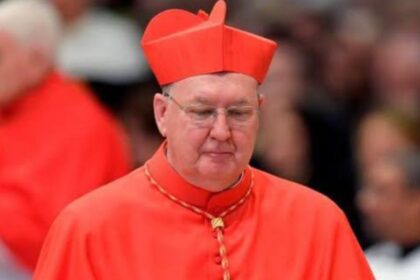Nigeria may spend about $1.4bn (N540.4bn, at the official exchange rate of $1: N386) to procure and distribute 218,400,000 doses of COVID-19 vaccines.
The figure is based on estimates of the World Health Organisation as regards the total amount of funds that Africa would need to pursue a vaccination drive.
According to the WHO, Africa will need at least $9bn (N3.4tn) to procure and distribute 1.4 billion doses of COVID-19 vaccines.
This development comes as Lagos State Governor, Babajide Sanwo-Olu; his Edo State counterpart, Godwin Obaseki; as well as the wife of Osun State Governor, Mrs Kafayat Oyetola, among others, have expressed worry over the second wave of the COVID-19 pandemic, amid rising cases and deaths in the past few weeks.
Meanwhile, the Immunisation and Vaccines Development Programme Coordinator, WHO, Dr Richard Mihigo, has said it will partner institutions such as the African Union, World Bank and others to roll out the COVID-19 vaccination in Africa.
Responding to a question posed the WHO Africa online press briefing last week, Mihigo said, “We will definitely need to vaccinate between 60 to 70 per cent of the African population.
“So, if you consider that we have about 1.2 to 1.3 billion people on the African continent and you take 60 per cent of that with the assumption that you will need maybe two doses per population, we are talking about close to 1.3 to 1.4 billion vaccine doses that will be needed to immunise 60 per cent of the people in Africa to reach herd immunity.”
Speaking further, Mihigo explained that it was not just about the cost of the vaccines but the cost of delivering them and ensuring that they got to the right locations.
He added that there were no guarantees that there would be enough supplies before the end of 2021.
The WHO official stated, “So if we compute that number with the preliminary information that we are getting with these vaccine manufacturers because it is not only the cost of the vaccines. There are also additional costs that are needed to deliver those vaccines.
“We know very well that the preliminary rough estimation that is being done, we may need up to $9bn. So, this is a lot of money, a lot of funding that will be needed. First of all, we are not sure that we are going to get enough supply to immunise everybody (in Africa) by the end of 2021.”
Nigeria, which has an estimated population of 203 million people, is Africa’s most populous country and constitutes 15.6 per cent of the entire population of the continent.
Based on the WHO’s estimates on how much it would cost Africa per head, Nigeria may require about $1.4bn to procure and distribute 218,400,000 doses of COVID-19 for double doses for 60 per cent of its population.
It was, however, learnt that there were ongoing discussions with the African Union to work with other multilateral or development banks like the World Bank and Afrexim Bank to mobilise resources for African countries, including Nigeria.
Reports on Saturday had it that individual countries were buying the vaccines at different prices based on their negotiating power.
Most countries buying from manufacturers were also made to sign confidential agreements that they would not disclose the cost of purchase.
However, Belgium’s Secretary of State for Budget, Eva De Bleeker, in a tweet, revealed the price that the European Union had agreed to pay for the leading COVID-19 vaccines.
The tweet was quickly deleted, but not before screenshots of the tweet had been taken.
According to the UK Guardian, while campaigners for access to medicines were delighted at the transparency, pharmaceutical companies were not. Pfizer complained about a breach of confidentiality.
“These prices are covered by a confidentiality clause in the contract with the European Commission,” said Elisabeth Schraepen, the US drugmaker’s spokeswoman for the Benelux region to the Belgian daily Le Soir.
The price list revealed that the Oxford/AstraZeneca vaccine is the cheapest and Moderna is the most expensive – as was already known. But the details allow countries that may be negotiating with the vaccine manufacturers to take a harder line.
The EU paid about $2.1 for Oxford/AstraZeneca while Johnson & Johnson cost $8.50, Sanofi/GSK cost $9.29, Pfizer/BioNTech cost $14.76, Moderna was purchased at $18 while Curevac was put at $12.3 per dose. Belgium, which has a population of 11.4 million, is buying more than 33 million vaccines for a total of $343m.
When contacted on the telephone on Saturday, the Minister of State for Health, Dr Olorunnimbe Mamora, said he could not say immediately how much the vaccines would cost.
He, however, said he along with health officials would be meeting with the National Assembly on Monday to discuss finances and other issues.
He urged Nigerians to continue to abide by the COVID-19 protocols like wearing face masks and washing of hands.
Mamora said, “Ideally, we will need to vaccinate 60 per cent of our population and 60 per cent of 200 million people (over 120 million) is large. [The National Population Commission recently said Nigeria’s population was now estimated at 206 million.]
“Also, depending on the type of vaccines we will buy, you then multiply it by the cost, and that excludes the cost of logistics, syringes and other things.
“We have been invited to meet with the National Assembly on Monday and, of course, funding will be a major issue to look at. But I am sure they will want to know what we are doing, our level of preparedness and other issues, but funding will be part of it because, at the end of the day, they will have to appropriate any budget that is brought before them.”



